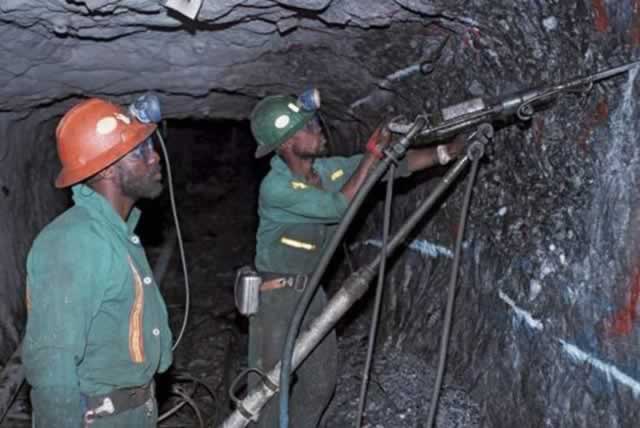Miners pin hopes on policy interventions

Martin Kadzere and Conrad Mwanawashe
ZIMBABWEAN miners are pinning hopes on policy interventions to minimise the negative impact of depressed global commodity prices, the Chamber of Mines has said.
“We hope this year may be a turning point as long as critical issues that affect performance and growth of the sector are addressed,” Chamber of Mines chief executive Mr Isaac Kwesu said yesterday while briefing journalists on the state of the mining industry survey for 2015 expected to be launched in the capital tomorrow.
“Our members have been on record appealing for a number of policy interventions. Capital and liquidity challenges remain prevalent in the sector. We hope certain bottlenecks that affect the inflows of capital will be addressed this year as we share some of the findings of the study, we may be agreeing on how best to move forward in terms of capital.”
Government has already hinted on some of the policy measures it will put in place to enhance viability.
It is crafting a legal framework that balances the various taxes and fees being paid by the mining sector vis a vis their operational viability.
The framework will go through Government approval processes pending enactment of a Bill.
While Government has over the years reviewed mining fees and charges, some of the fees remain relatively high compared to those obtaining in the region, hence increasing costs, and an impeding new investment.
Finance and Economic Development Minister Patrick Chinamasa said in the 2016 National Budget a further review of selected mining fees and charges would be undertaken during the first quarter of this year to encourage investment in the sector and to enhance viability.
Minister Chinamasa said Government will also rationalise fees and charges, which mining companies pay to other Government agencies such as the Environmental Management Agency, the Radiation Protection Authority and the Rural District Councils.
Mining companies had approached Government seeking some cushioning during times of low international commodity prices, through provisions for review of royalties and fees.
“It is common knowledge that our industry is going through difficult times particularly on the backdrop of depressed international prices, majority of mining houses are struggling to breakeven. Viability has been heavily compromised. The costs of production have not been coming down, instead they have been going up,” said Mr Kwesu.
On the survey, he said the report would provide all descriptive performance data regarding the mining industry in terms of production, capacity utilisation, and challenges facing mining houses specifically how mining houses intend to survive during this period of low prices. It was done by local consultancy firm, New Times Innovations.
The report will also provide an expert opinion on beneficiation and value addition and how capital shortages could be addressed.
Other stakeholders such as the Government and labour were also given an opportunity to respond to issues affecting the industry.
The mining sector registered a negative growth in 2015 for the second year in a row, but is expected to register a 2,4 percent growth this current fiscal year on the back of planned investments, and largely driven by strong performance of gold, chrome, nickel and platinum.











Comments